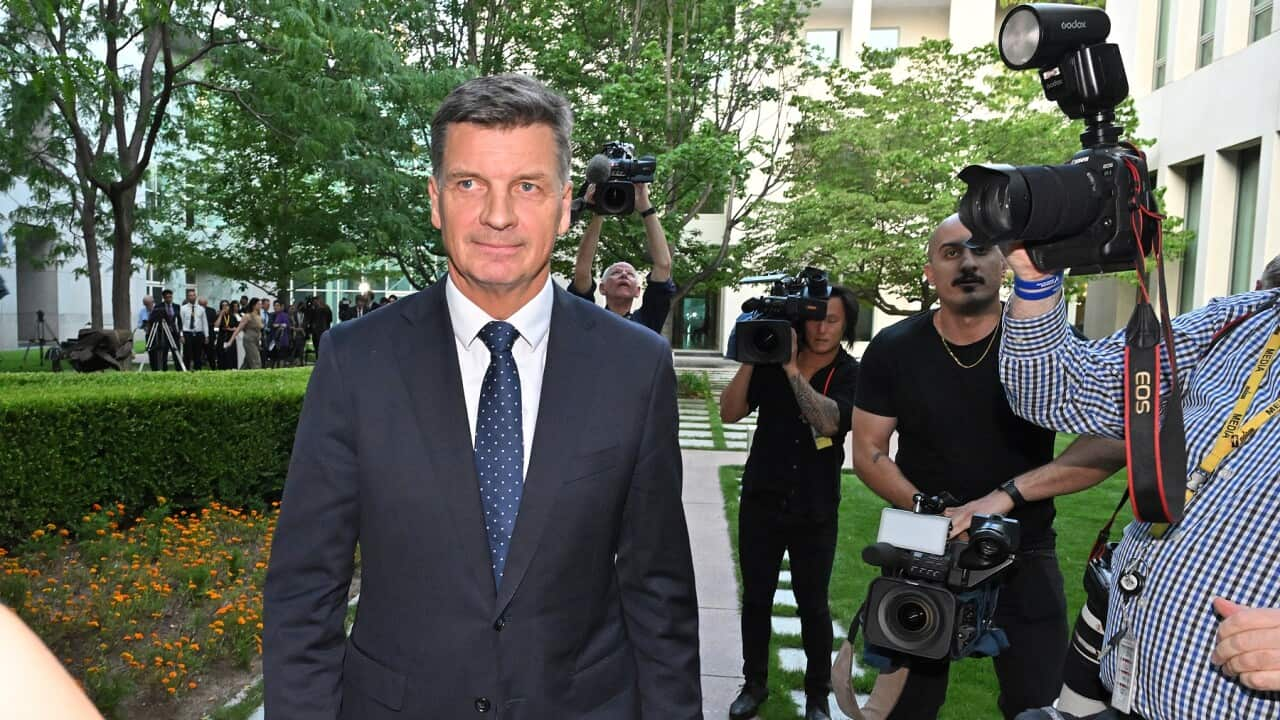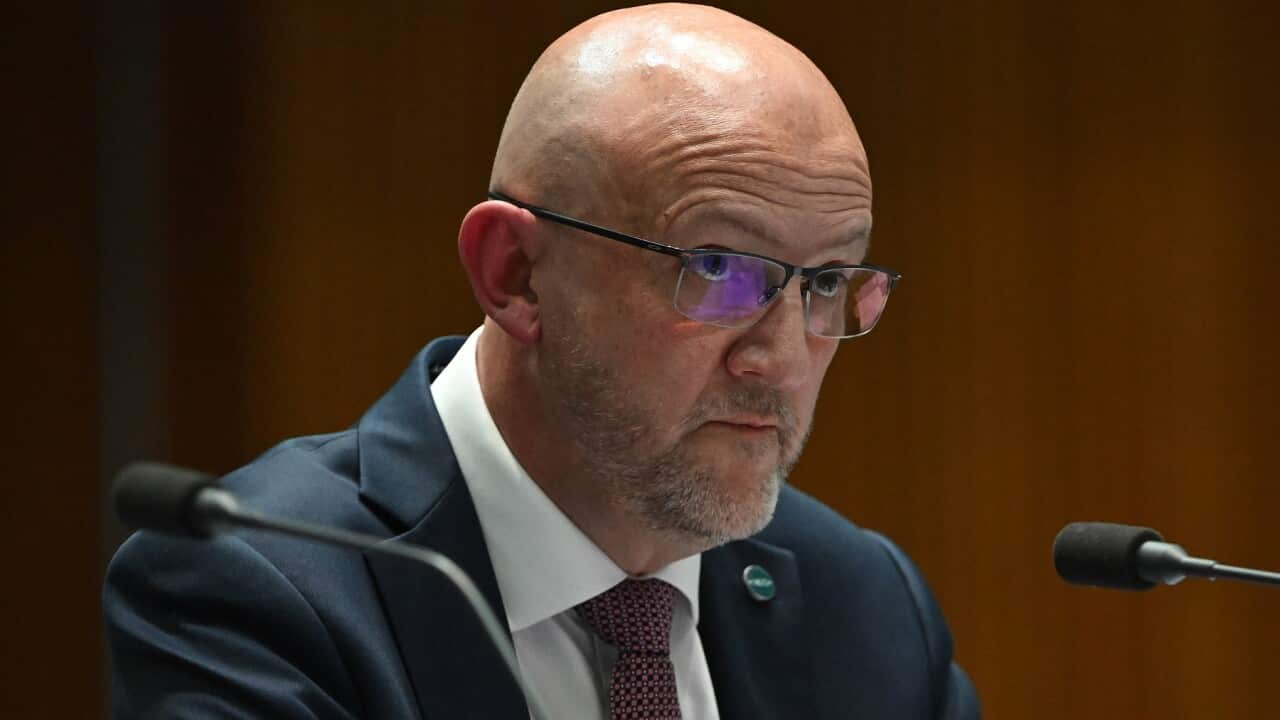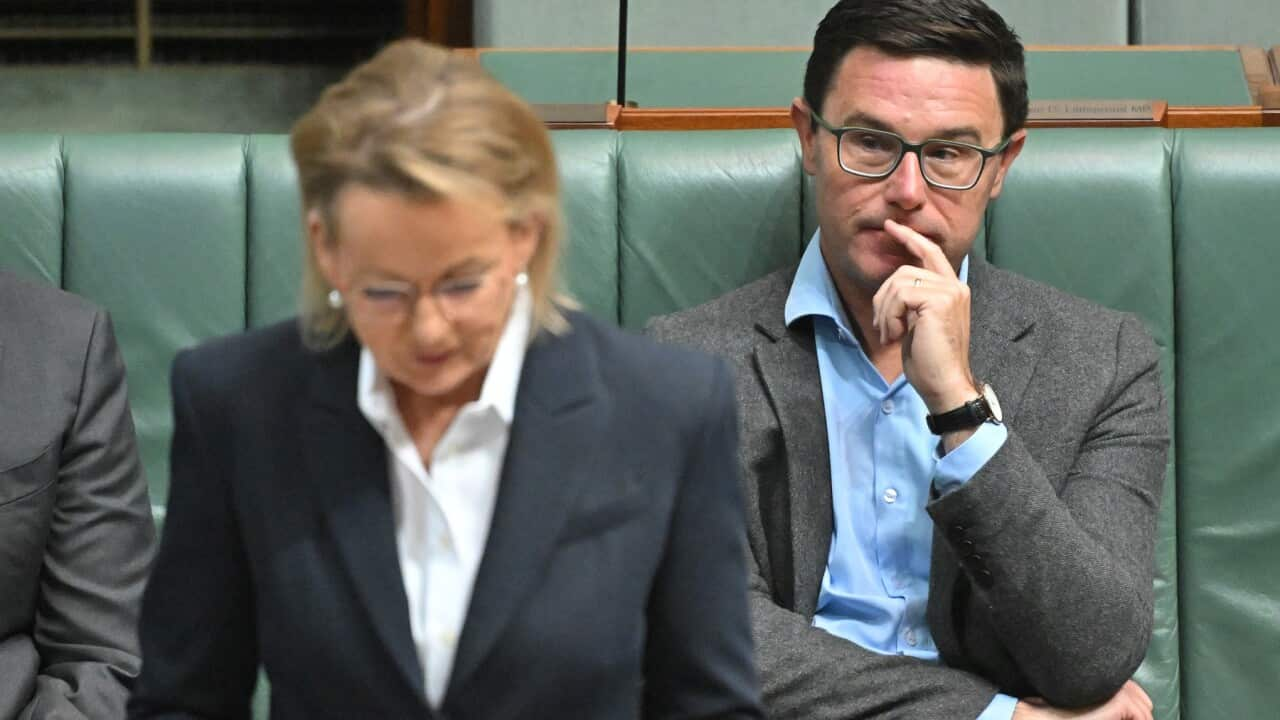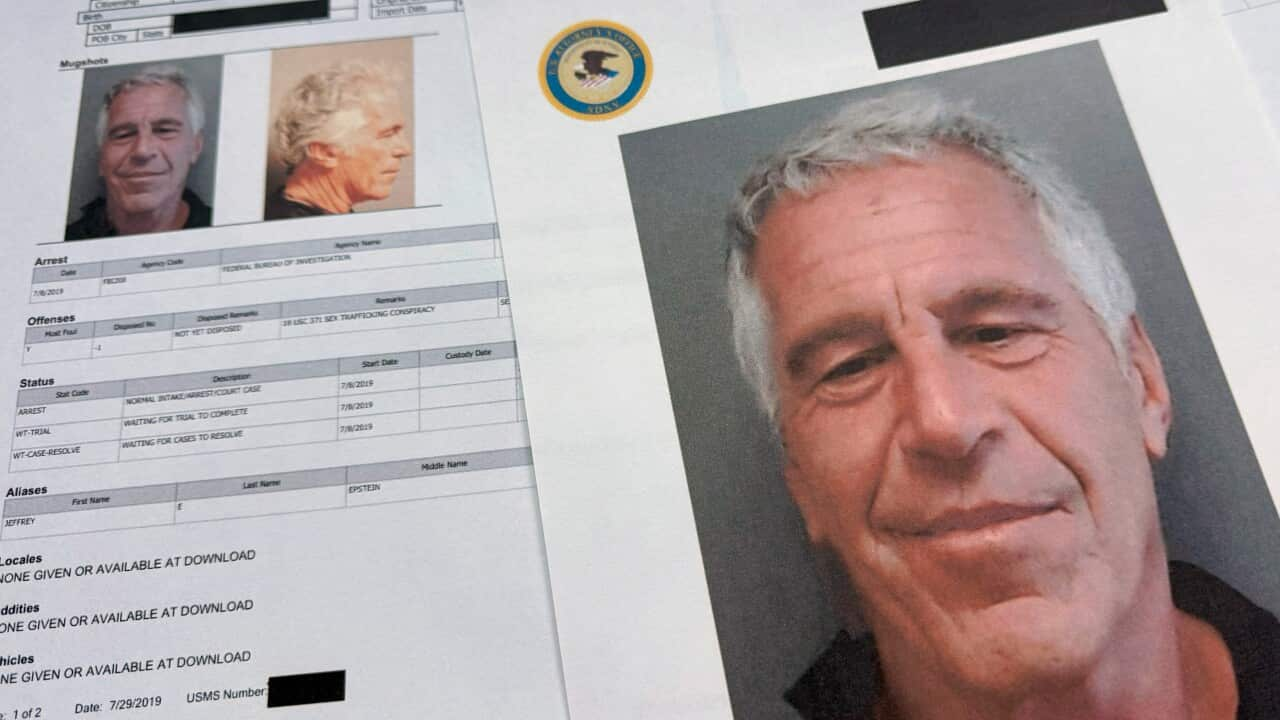Listen to Australian and world news and follow trending topics with SBS News Podcasts.
TRANSCRIPT:
The Coalition has unveiled their full energy policy after a party room meeting, with the Liberals and Nationals formally agreeing to dump the net zero by 2050 emissions reduction target.
Opposition leader Sussan Ley says Australian governments have long been doing more than their fair share to lower carbon emissions.
"Since 2005 and the last 20 years, this government has raced ahead and emissions have been reduced at one and a half times the rate of comparable countries. And if we are to reach their target in 2050, they will have to double again. That's not responsible emissions reduction, that's not doing our fair share. Now this is hurting Australian families and it's hurting Australia's amazing small businesses."
The new stance comes after the Liberal party followed in the footsteps of their Coalition partners in scrapping net zero from their policy platform.
They say they want to unlock more investment in gas supply and infrastructure, establishing an east coast gas reservation scheme.
The Coalition also wants to strip climate change from the national energy regulator's list of objectives.
Liberal leader Sussan Ley and Nationals leader David Littleproud say they will remove emissions reduction considerations from the Australian Energy Market Operator (AEMO), which should boost supply and lower prices.
LEY: "By giving the national electricity market the objective of affordable power we know that the investments we make and the rules that we set will be all about bringing energy prices down."
LITTLEPROUD: "Exactly and this is a practical way of changing the mandate of AEMO. Their first mandate is to source energy predicated on the 2030-35 targets, that means that we have latent supply, or base load, sitting there that we need to increase the supply of and actually drive down those prices by the simple principle of demand and supply."
The CSIRO and international energy experts have consistently found that renewable energy with storage and backup generation to ensure reliable supply - known as firming - is the cheapest form of new electricity.
But in their new energy plan, the Coalition hopes to shift away from renewables by removing nuclear technology bans.
The CSIRO estimates it would take at least 15 years for Australia's first nuclear reactor to come online after these bans are scrapped.
The Nationals leader says they intend to boost fossil fuel production in the short term to help ease that transition.
"Taking a technology agnostic approach to that, when you look in my home state of Queensland, they intend to sweat out their coal-fired power stations. What you do by expanding it is you actually put that downward pressure right across all sources of energy and what it also does is it buys the time for us to transition into things like nuclear energy."
The latest report from the independent Climate Action Tracker puts the world on course for devastation, with global temperatures set to heat up by 2.6 degrees Celsius above preindustrial times by the end of the century.
Experts say these rises could see the end of agriculture in the United Kingdom and much of Europe, with the loss of coral reefs, rising sea levels and lethal heat and droughts expected around the world.
Associate Professor Joel Gilmore, from Griffith University, is a member of the Climate Council and an energy systems expert.
He says the new policy approach from the Coalition is a major setback for the climate and the future of renewables investment.
"Fighting against net zero is fighting against gravity. This is a future the whole world is moving towards and every time Australia flip flops on this policy, investors are starting globally to look at other places to invest. So it is critical that we have a clear, united view that we are going to do net zero and bring costs down for all Australians."
The Coalition says they will still seek to reduce emissions in alignment with countries around the world but they have not set any targets and are promising to remove what they describes as 'punitive' mandates against high emissions projects.
They'll also scrap penalties under the New Vehicles Emission Standard and ditch the tax benefit exemption policy for electric vehicles.
The Albanese government immediately criticised the Coalition's policy update.
Senator Penny Wong has told the ABC the decision to abandon net zero has pushed the Liberal party to the fringes of its conservative wing.
"This used to be a serious mainstream political party in this country and now it is overrun by the fringes. They are trying to outflank Pauline Hanson. And what I'd say to Sussan Ley and to Andrew Hastie and to Angus Taylor is you can't be more Pauline than Pauline. But ultimately, what their confused, divided approach will lead to is higher prices for Australians."
The Senator says the weakened climate targets also show disrespect towards Pacific nations.
Her comments have been backed by the Prime Minister.
"If anyone thinks that there is certainty in the Coalition going forward, then they're not paying any attention to the rabble and clown show that the Coalition have become when it comes to energy policy and climate policy. Uncertainty - that kills off investment and less investment means higher power prices."
Climate policy has been a contentious issue within the Coalition for decades.
At the last two federal elections, the Liberal Party lost inner-city seats to independent candidates focused on climate action.
But Liberal Senator Jonathon Duniam has rejected suggestions the climate policy reversal could hurt the Coalition at the next election or on the international stage.
Shadow energy minister Dan Tehan says he believes voters will recognise the Coalition can deliver on the affordable energy promises that Labor took to the May federal election.
"They don't have an answer when it comes to energy affordability and reducing emissions. The $275 they promised you by the end of this year in a reduction in your power bills isn't going to happen. They also promised to bring emissions down as well yet emissions are flatlining."













